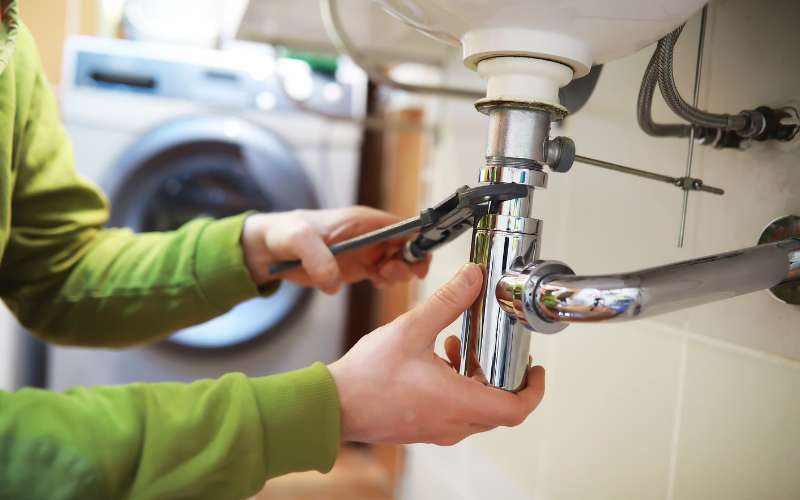Are you tired of dealing with unexpected plumbing issues that lead to expensive repairs? Proper plumbing maintenance can help you avoid these costly headaches. By following a few simple steps, you can keep your plumbing system running smoothly and save money in the long run. This post will provide you with essential plumbing maintenance tips to avoid costly repairs and keep your home safe from water damage.
Simple Plumbing Maintenance Strategies to Prevent Expensive Repairs
Regular plumbing maintenance is crucial to prevent major problems and expensive repairs. Here are some practical plumbing maintenance tips to avoid costly repairs in your home. By following these tips, you can save time, money, and frustration.
a) Regularly Check for Leaks
Leaks are one of the most common plumbing issues. Regularly check under sinks, around faucets, and near appliances like washing machines for any signs of leaks. Even a small leak can lead to significant water damage and costly repairs if left untreated. Fixing leaks promptly can help avoid further problems and keep your plumbing system in good condition.
b) Clean Drains and Avoid Clogs
Clogged drains can lead to water backups and potential plumbing disasters. To avoid this, clean your drains regularly using a mixture of vinegar and baking soda, which helps dissolve minor clogs and keeps drains clear. Additionally, avoid pouring grease, coffee grounds, and other debris down the drain. These items can build up over time, causing stubborn clogs that require professional attention.
c) Inspect Your Water Heater
A water heater is a critical component of any home’s plumbing system. To ensure it operates efficiently, inspect your water heater for any signs of rust, corrosion, or leaks. Flushing your water heater annually helps remove sediment buildup that can affect performance and cause the unit to overheat. Regular inspections and maintenance can prolong the life of your water heater and prevent costly replacements.
d) Monitor Water Pressure Levels
Excessively high water pressure can damage your plumbing system over time. It can lead to leaks, pipe bursts, and other plumbing problems. Use a water pressure gauge to check your home’s water pressure regularly. The ideal pressure should be between 40-60 PSI. If the pressure is too high, consider installing a pressure regulator to keep it at a safe level and avoid costly repairs.
e) Test Your Shut-Off Valves
Shut-off valves control the flow of water to various parts of your home. In emergencies, such as a burst pipe, it is essential to know where these valves are and how to operate them. Test each shut-off valve every few months to ensure they are functioning correctly. This simple step can help you quickly stop water flow during an emergency and prevent extensive damage.
f) Protect Pipes from Freezing
Frozen pipes can burst, causing severe water damage and expensive repairs. During cold weather, insulate exposed pipes, especially those in unheated areas like basements, attics, or garages. You can also leave a trickle of water running from faucets during freezing temperatures to keep water moving and prevent pipes from freezing. Taking these precautions can save you from dealing with a plumbing nightmare.
g) Schedule Regular Professional Inspections
Even with regular DIY maintenance, it’s important to have a professional plumber inspect your plumbing system annually. A licensed plumber can identify potential issues that might be missed during routine checks. They can also provide expert advice on maintaining your plumbing system and avoiding costly repairs in the future.
h) Use Water Softener to Prevent Mineral Buildup
Hard water can cause mineral buildup in your pipes, which can lead to clogs and damage over time. Installing a water softener can help reduce mineral buildup, extend the life of your pipes, and prevent expensive repairs. Regularly check and maintain your water softener to ensure it works effectively.
i) Install Drain Strainers
Drain strainers are inexpensive tools that help catch hair, food particles, and other debris that can cause clogs. Installing drain strainers in sinks, showers, and tubs can significantly reduce the risk of clogs and help maintain your plumbing system. Clean the strainers regularly to keep them effective and ensure smooth water flow.
Contact Us for Professional Plumbing Maintenance
Regular plumbing maintenance can save you from costly repairs and water damage. If you need expert help or want to schedule a professional inspection, don’t hesitate to contact us. Our team of experienced plumbers is ready to assist you with all your plumbing needs. Protect your home and save money—reach out to us today!

